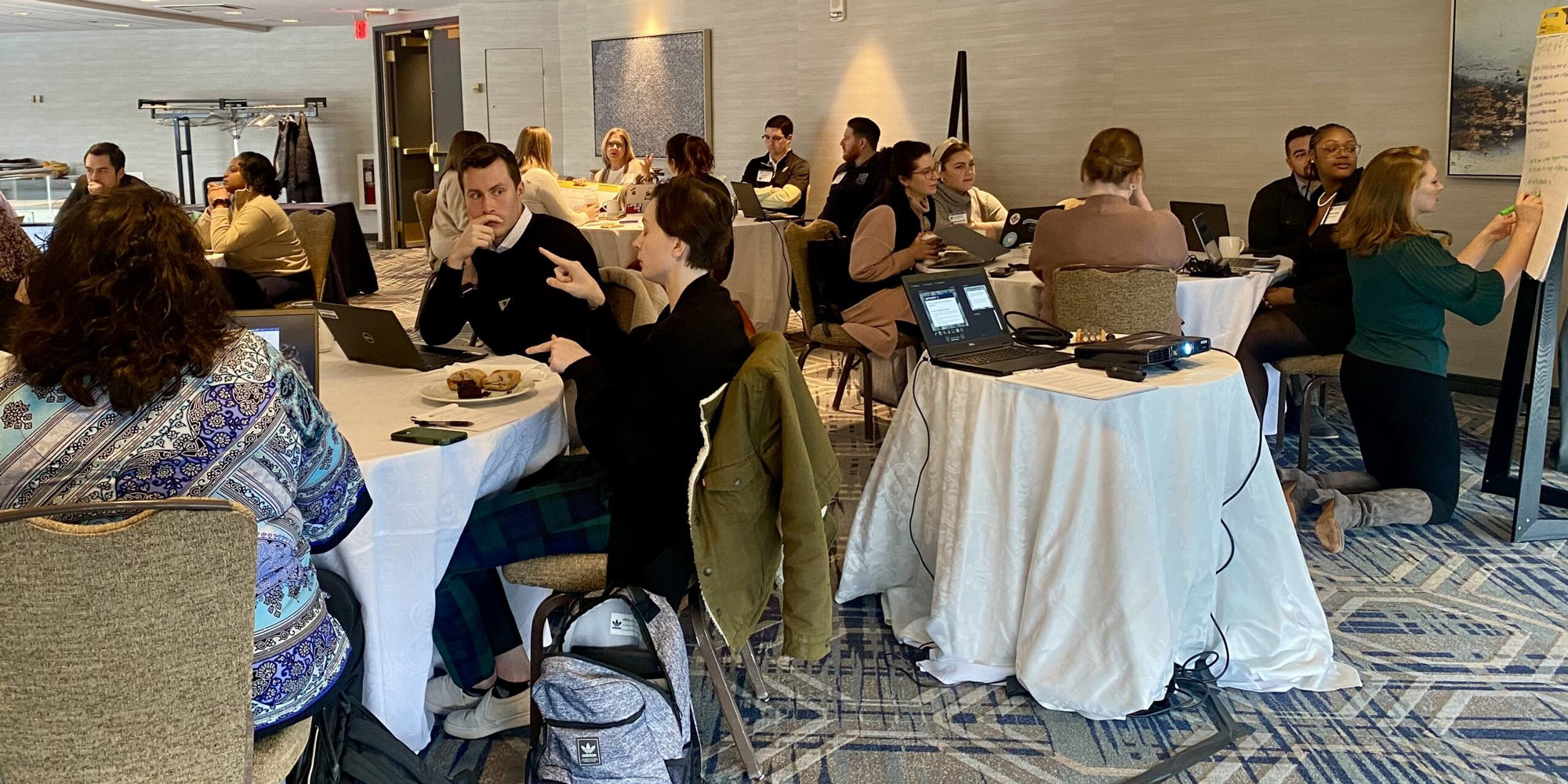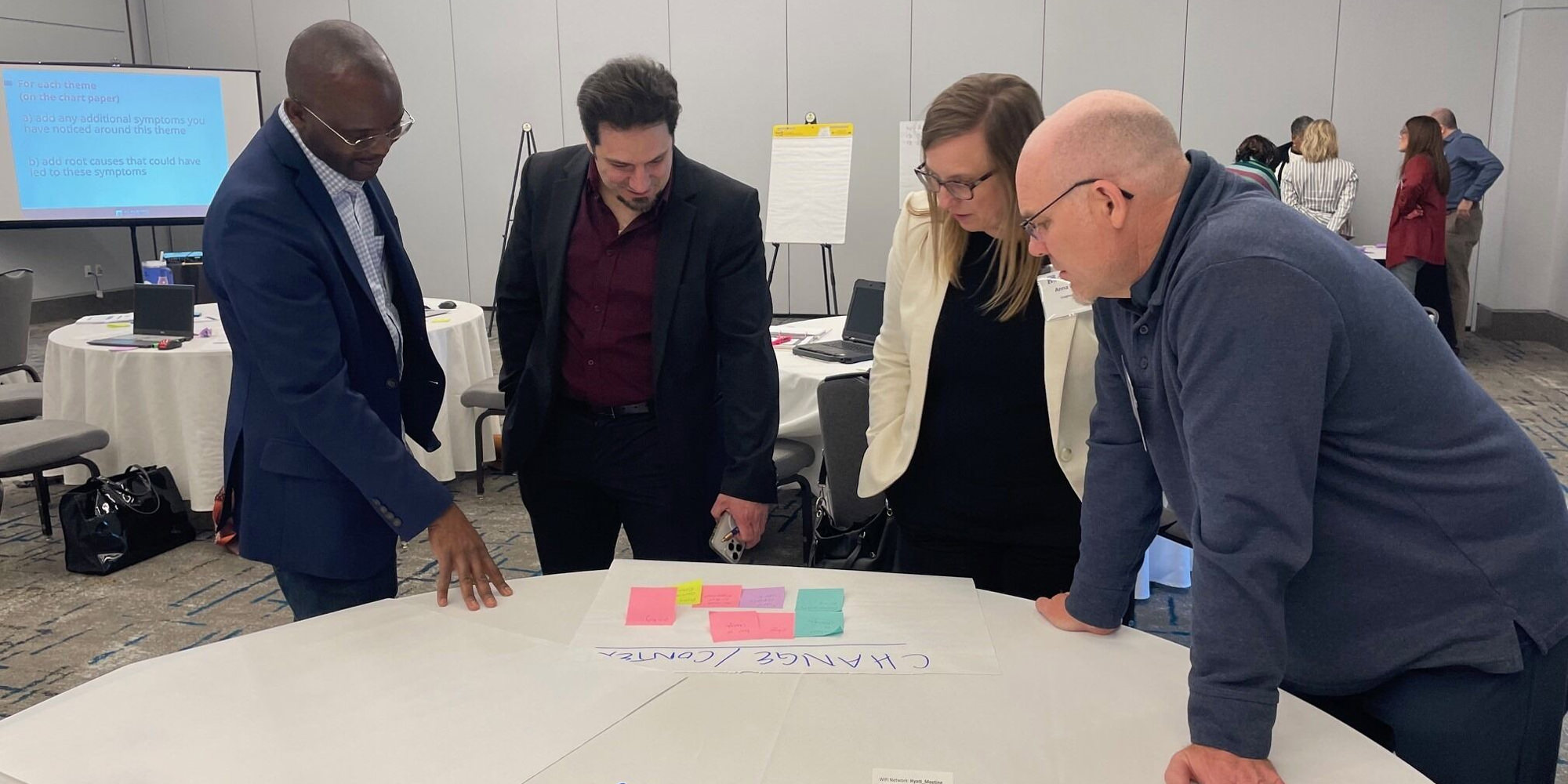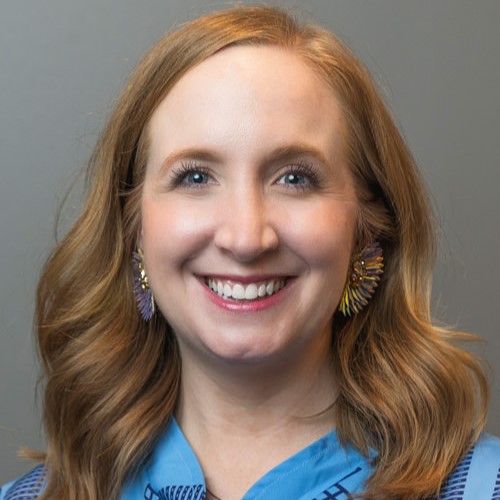Volunteer Boards in Higher Education: Strengthen Your Strategy and Grow Engagement
June 11 - 12, 2026 | Denver, CO SEE PRICINGTransform your board’s impact by aligning strategy, engaging members, and fostering a culture of purpose and collaboration.
What You'll Gain
- Learn how to design, recruit, and engage volunteer boards effectively, ensuring that their work aligns with your institutional priorities.
- Discover techniques to improve board meeting formats and agendas, fostering productive discussions and active participation.
- Evaluate and cultivate a positive board culture, promoting collaboration and effective governance.
- Create a personalized board strategy to enable immediate implementation when you return to your institution.
Overview
Are you ready to take your design thinking skills to the next level? Join us for a transformative two-day experience at Virginia Commonwealth University, where you’ll master the techniques of design thinking facilitation. The conference—a collaboration between Academic Impressions and VCU’s da Vinci Center—will equip you with the tools to inspire innovation, design dynamic sessions, and make a real impact within your organization.
This program is designed to empower leaders, facilitators, and educators by providing hands-on learning, real-time feedback, and practical action plans. Whether you’re new to design thinking or looking to expand your expertise, this event offers everything you need to lead with confidence.


Session Descriptions
More details about the specific event schedules for each day can be found by clicking Learn More and Register, but session descriptions encompassing both days follow below:
Defining Board Purpose and Roles
We’ll kick off this event with a conversation around how boards in higher education have evolved and how they should best be utilized across different institutional contexts. We’ll review how to translate your board’s purpose into meaningful responsibilities and productive relationships with staff, and you’ll be able to discuss your board’s unique purpose and roles, as well as any challenges you may experience in defining them.
Developing an Intentional Board Culture
A healthy board culture is essential for a board to be able to effectively execute its strategy and accomplish its goals. We‘ll discuss the role of your executive committee in setting and maintaining board culture. We’ll also provide examples of effective board cultures and ways to evaluate current culture. We’ll discuss the importance of positive leadership, team building, and professional development, as well as active engagement, working through conflict, and continuous cultural improvement.
Evaluating Board Governance and Operations
Structure should reflect a board’s purpose, roles, responsibilities, and process. Unfortunately, committees, policies, and bylaws are often created on an ad hoc basis and/or not updated regularly. We’ll discuss how to create or revise your own structure to make it reflective of your mission and will also address how to implement that structure most effectively. You’ll then have time to work in small groups to note key issues or changes you are considering related to bylaws or other policy.
Setting Board Strategy
With your board’s purpose set and member responsibilities defined, the next step is to begin developing your strategy. We’ll address how to cooperatively define long- and short-term strategies that align with those of professional staff, and we’ll discuss how to ensure your board’s support for the work. We’ll then review how to move from strategy to implementation to position your board for maximum effectiveness.
A Talent Management Framework for Your Board: Identification, Recruitment, and Development of Board Members
Identifying ideal board members from your pool of alumni leaders requires cooperation from all areas within advancement and the board. This session will focus on best practices for selecting and recruiting productive, dedicated board members—including how to convert board members from other volunteer programs. Knowing that succession planning can be tricky to navigate, we’ll talk through building a leadership pipeline, paying particular attention to board composition. You’ll also have the opportunity to discuss how to approach diversifying your board representation.
A Talent Management Framework for Your Board: Onboarding, Training, and Development
Bringing new board members up to speed, while integrating them into the existing membership, is essential to managing turnover effectively. We’ll walk you through how to onboard and educate both your board leadership and your new members, and we’ll also provide tips for training them for their roles on the board.
Cultivating a Productive Board
There is nothing more frustrating than a board that fails to accomplish its goals. Here, we’ll explore how to keep your board productive and engaged. You’ll work with peers to consider different format and agenda options for board meetings and committee meeting cadence, as well as how to apply the best options to your meetings to make them more productive. In addition, we’ll consider how to sustain momentum between full board meetings as well as how to incorporate technology to maintain communication during those times.
Creating a Board Strategy Road Map
In small groups, we’ll discuss key takeaways from the conference and identify three to four actionable strategies that will enhance your board’s effectiveness and member engagement. Discussion groups will be curated based on board type, to facilitate peer-to-peer dialogue that can help you to develop your action plan.
Who Should Attend
This workshop is carefully designed for institutional representatives and leaders who are charged with increasing board effectiveness. Your board’s leadership will also benefit, and their attendance can help to ensure their buy-in on action plans. You are highly encouraged to bring teams comprised of both constituents.
The content of this program will be applicable to a variety of boards, including alumni association boards, chapter/regional boards, affinity/shared-interest boards, and other advisory boards.
How You’ll Use This to Move Work Forward
-
- Alumni Engagement Professionals – Build positive leadership to create a healthy and effective board culture.
- Alumni Relations Professionals – Cultivate a productive board by recruiting board members, as well as by converting other alumni volunteers to board members.
- Advancement Leaders – Align the efforts of your alumni board with larger advancement and institutional goals.
- Alumni Board Leaders & Members – Assist with board leadership and evaluation, driving for success at both the mission level and the individual level.
Multiple members of an advancement team and board leadership attending together will experience the greatest results. Register 3 or more people and save more than $1,000! Discounts will be automatically applied at checkout.
What makes our events different?
Academic Impressions conferences provide the opportunity for quality conversations and relationship-building through both formal and informal networking opportunities in an intimate setting. Our in-depth and hands-on approach to learning provides you with actionable takeaways.
Learn More About the Academic Impressions Conference Experience ➞
Grow Leadership. Maximize Your Budget.
Empower your team with professional development that pays off. Our Workshop Group Packs help you build leadership capacity while saving money. Discounts are automatically applied at checkout.
What Our Attendees Are Saying
Pricing
June 11 – 12, 2026
Denver, CO
Starting at:
-
Non-Member Price: $2,495
/person
-
Member Price: $2,245
/person
-
Teams: Save $2,000+
for teams of 3 or more
Members get a $250 discount
Additional optional add-ons are available during checkout.
Questions About the Event?
Have you attended this event in the past or do you know someone who may be interested? Share it with your network.


